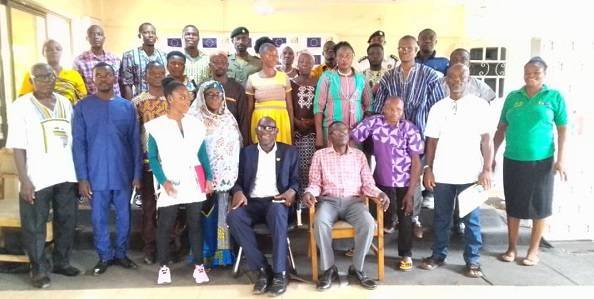The National Commission for Civic Education (NCCE) in the Lawra Municipality of the Upper West Region has tasked a 43-member inter-political dialogue committee to work together to ensure the continuity of peace in the run up to the 2024 general election and beyond.
The committee, which comprises representatives selected from groups such as the Lawra Youth Association, Muslim women association, Christian organisations, political parties, security services and traditional council, was assigned the task during a day’s training at Lawra on preventing and containing violent extremism as election 2024 approaches.
Addressing participants at the training, the Municipal Director of the Commission, Mr Jesurun Ninge Mornah, told the committee that their major role was to ensure peaceful coexistence in the municipality and reminded them to diligently work towards conflict prevention.
Peace, he said, was a very “expensive commodity” that was needed for human existence, and, therefore, encouraged the committee members to “dedicate their time, effort and energy for peace”.
The European Union-funded activity sought to deepen the understanding of members on violent extremism for national cohesion among institutions and political parties in the Municipality and beyond in the fight against violent extremism.
Discussions at the training centred on monitoring and reporting threats, vulnerabilities to violent extremism, ways to detect youth radicalisation and signs of recruitment, mediation and resolution of local conflict.
“This engagement sought to provide members with the skills to identify signs of radicalisation, create awareness on peace building mechanisms, community-based strategies for identifying early warning signs and community-based mechanisms for countering violent extremism as well as encourage members to use their respective institutions to contribute to the promotion of tolerance and national cohesion in the fight against extremism,” he said.
The Director said Ghana would be a peaceful place if people consciously worked at building peace building within communities and the nation at large.
For his part, the Regional Director of the NCCE, Mr Victor Elikpilim Nuworkpor, called for unity and peaceful coexistence across the political divide of the country and encouraged the committee to ensure peace during and after the general elections.
Mr Samuel Dapila, the Chairman of the inter-party dialogue committee, explained that peace building was a long-term process of implementing strategies intended to create and sustain peace, especially in a conflict situation and encouraged his colleagues to use dialogue to resolve conflicts and repair institutions.
On community-based approaches to peace building, he advised that the committee would collaborate with traditional leaders to use the traditional justice system in the communities to address conflicts.
FROM RAFIA ABDUL RAZAK, LAWRA

